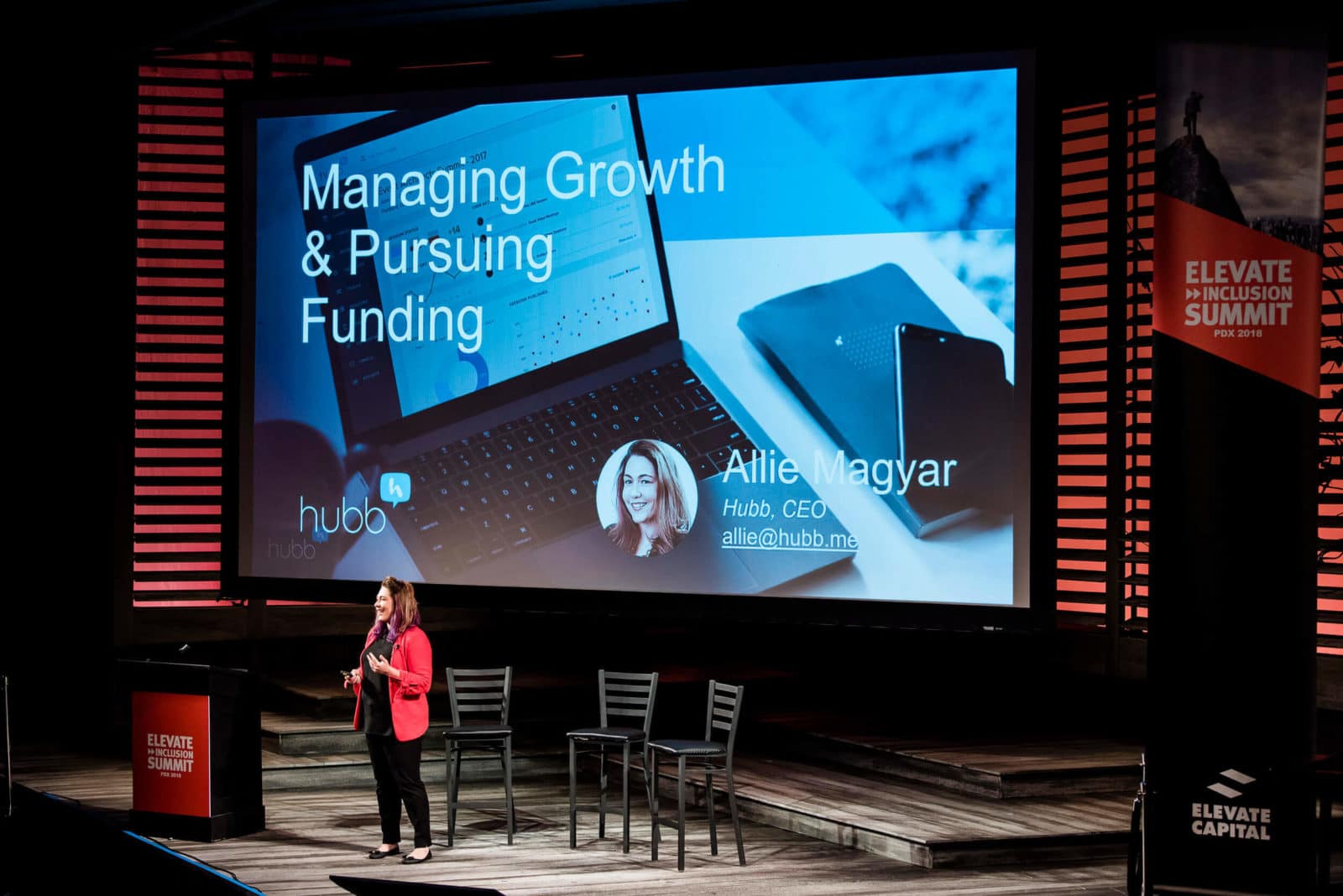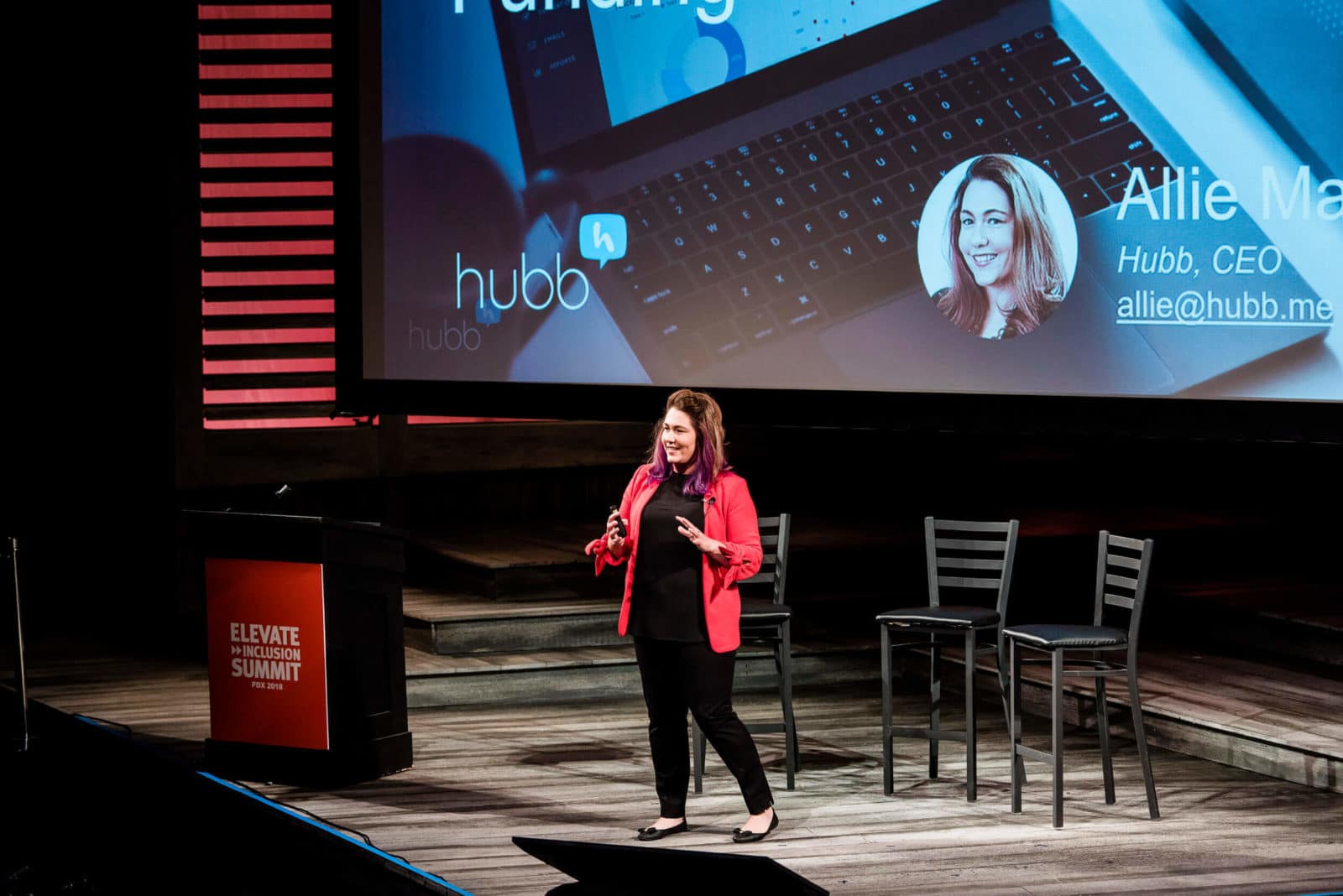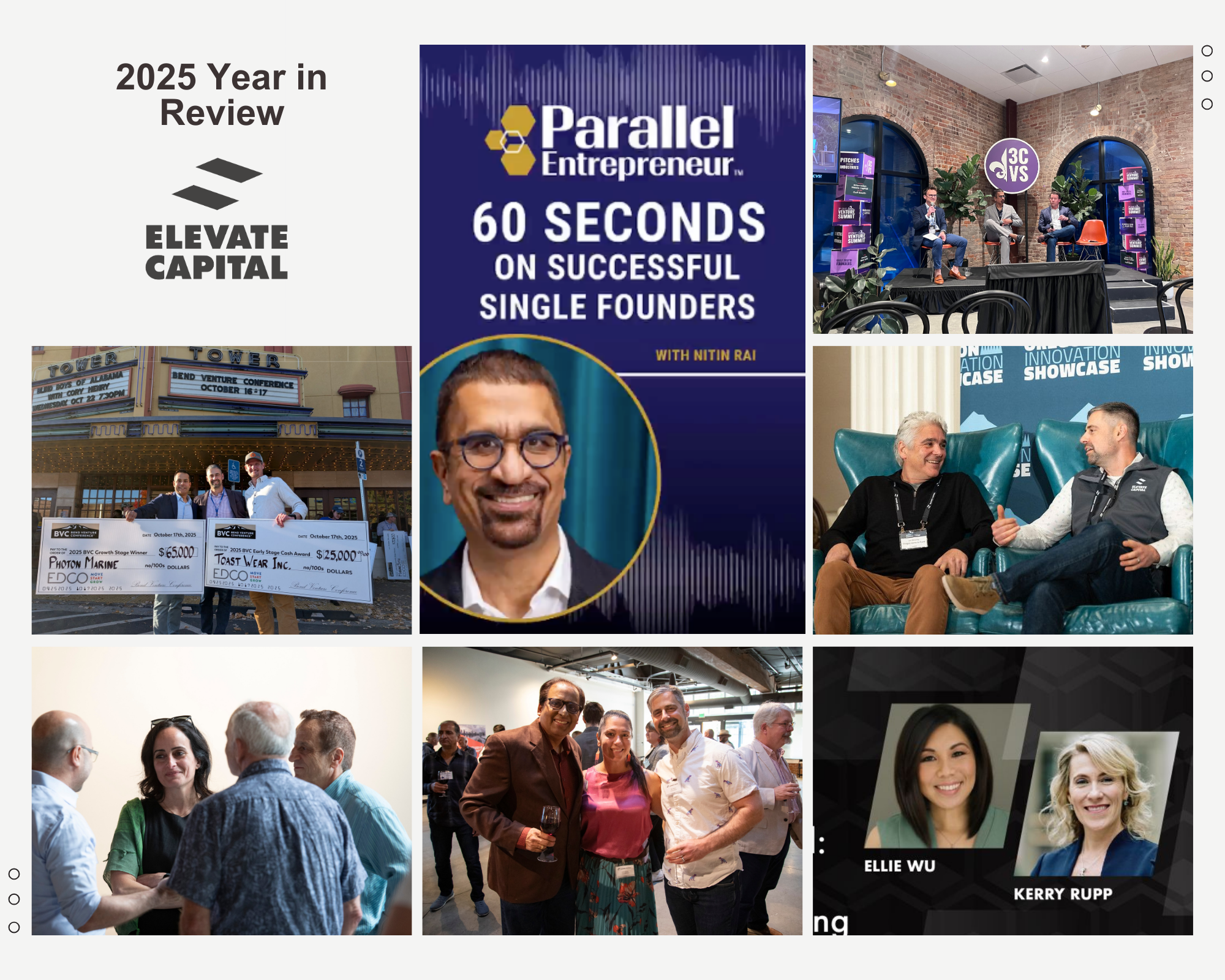What compelled you to start Hubb?
Founding stories are always deeply personal. For me, it was a result of being in the meetings and events industry my entire career. I was the CEO of an experiential agency, where we planned and managed some of the world’s largest technology conferences for Fortune 50 customers.
Through that process, I quickly realized why USA Today ranks meeting planning amongst the top five most stressful jobs every year. The volume of information that comes to a meeting planner can drown them.
One night I was planning an event for Microsoft. The business owner called me the night before and said: “Hey Allie, I changed up everything for the agenda tomorrow. I need you to go through all these emails and spreadsheets and figure out what’s going on. Get everything organized and printed before tomorrow morning at 6am when everyone shows up.”
I ran down there and locked myself in, sorting and re-sorting spreadsheets, finally getting to a print-ready version of an agenda…then the copiers started to break. So there I was at 3am, pulling out copiers, covered in ink from head to toe. I looked at my colleague, and I said: “There has to be a better way to do this.” So, we built Hubb.
How did your childhood dream turn into this one?
I still remember writing a letter to the president about how it would be such a good idea to have a penny day, where you could buy anything for a penny. So I think I wanted to be in corporate policy.
I’ve always been a person that’s pursued my passions. When I was younger, English and music were definitely passions of mine. I was a concert flutist. But in college, as I matured, I quickly realized those weren’t my passions anymore.
I left college and decided to pursue what I was passionate about, which is meetings and events. That’s taken me all the way through—from the age of 18 when I started my first company, all the way to where I am now at 38 with Hubb.
Tell us about Hubb.
Hubb is the single source of truth for any meeting or conference when it pertains to content, speakers, and sessions. Hubb helps automate all of the business process workflows that happen behind the scenes, giving you a way to collect and manage information then market it to all of your attendees.
We also focus on machine learning and AI. Those are buzzwords in the industry, but they have real, practical applications within Hubb. Our goal is to create the data sets and information analytics on top of it, to create better content and more relevant meetings and events.
During the early stages of Hubb, what was the impossible challenge?
I referenced earlier how meetings and events are one of the top five most stressful jobs. You’re working 20 hours a day, working nights and weekends, and traveling like crazy. As I realized we had built a product that was valuable to our team, I wanted to take Hubb to market. But I had absolutely no idea what that meant.
I knew other meeting planners could use what we had, but I’d been so heads-down being a meeting planner and building my services business that I didn’t have a community. I didn’t have any idea what fundraising meant. I had to get outside my comfort zone and find resources to pursue a completely different career in SaaS.
Share an “aha” moment from your first year in business.
There are “aha” moments every day when you’re an early-stage startup. I think the biggest “aha” moment was in the first year of Hubb. We were bootstrapped, and so I self-funded taking the company to market. It was a huge risk—we had a very small budget and a very small team.
Our “aha” moment was the feedback we got from our initial customers. We have Microsoft as a customer, and we ended up signing Tableau and Atlassian. As we saw some of the tech giants producing some of the best events in the world with our software, that was the moment when we knew we had built something of value. We decided to continue forward and raise our Series A.

Any rituals that help you stay healthy and productive?
At Hubb we believe there isn’t “work-life balance.” There’s just one life, and you decide to live your life to its fullest.
For me, it’s a constant reminder. I’ve got two kiddos at home. I’ve got a husband. I’ve got a little French bulldog. I’m also in a high-stress environment. When you’re in a startup, you have to take care of yourself as well as your family, and it requires dedication. So, I put things on my calendar. I ride my bike, and I take time for myself, but I don’t guilt myself for it.
We also strongly believe in just finding balance in what you do. I work all the time. If I decide on a Tuesday at 2pm I want to take my kids to the movies, why shouldn’t I do that? I know on Friday night at 10pm I’ll be working.
Work-life balance is all in the culture you create at your organization. You need to lead by example and ensure that people are living their fullest life.
What challenges do underserved entrepreneurs need to overcome?
I think the conversation is changing. An event like The Elevate Inclusion Summit is an example of where that conversation starts to happen and change.
Underrepresented minorities have a hard time raising capital. There’s a lot of information and data out there to show that the capital available to them is minimal compared to the rest of the world. As a minority founder, one of the ways you can overcome that is by utilizing your local resources.
We are blessed to have such a strong community in Portland. We have investment professionals who believe in diversity and inclusion. But we also have organizations focused on minority entrepreneurs and females, who provide special guidance and networking and groups to help us to figure out how to overcome challenges.
Describe your venture capital experience with the Elevate team.
I still remember the first time I met with Nitin’s team. Nitin is a person who just gets so excited. He puts his whole self into every conversation. During that meeting, we were feeding off each other and trading ideas back and forth, and talking about what the future might look like.
I left our meeting feeling energized and jazzed and ready to tackle the world. I knew Nitin was someone I wanted around me as I continued to go through the journey. Because it’s hard, and a lot of times you need that encouragement and energy to keep going.
One of the things I valued most about Elevate Capital and Nitin’s leadership has been his unique perspective and view as an entrepreneur. Nitin always has an entrepreneur-first mindset, and that is something I have valued throughout our experience.
While going through this process of fundraising through our Series A, and now our Series B, Nitin has always been the one to say: “Allie, there is a way. You will find the people that are right for you.”
In what ways does Nitin Rai’s mentorship guide your success?
Luckily for me, Nitin and the Elevate team have been alongside us for two years now—all the way from the start of our journey to where we are now, to successfully raising our Series B funding. I credit a lot of that to Nitin’s mentorship and his guidance throughout the process.
In the early stages, it’s really about getting some of the rhythms of business items in place. Nitin is a cash flow master. There was so much I learned from him about how to manage our cash flow, and when to think about raising our next round of funding.
Nitin also has a wide variety of connections throughout the industry. As I started to consider pursuing this option or that option, he put me in contact with people so I could understand what that path might look like to understand the pros and cons of every situation.
Not only has Nitin been there to help with the growth and strategy of how to scale, but he’s also been a strategic advisor to help us think about what’s next.
How has networking in Portland helped your business?
As a part of the greater Portland community, one of the things I valued the most as I started to get involved in the community was the state of coopertition.
Portland is a competitive place, but entrepreneurs work together, share diligence and information, and support one another. That makes Portland one of the best places to be a startup founder and an entrepreneur.
What advice would you give to an aspiring entrepreneur in an elevator?
Surround yourself with people who are in cultural alignment, who can share your vision of where you want to go and how you want to get there.
As you’re thinking about investment and your growth, make sure your investors share that same cultural alignment and vision. Choosing an investment partner is a strategic hire. An investor can make or break your company’s growth and your ability to succeed.



